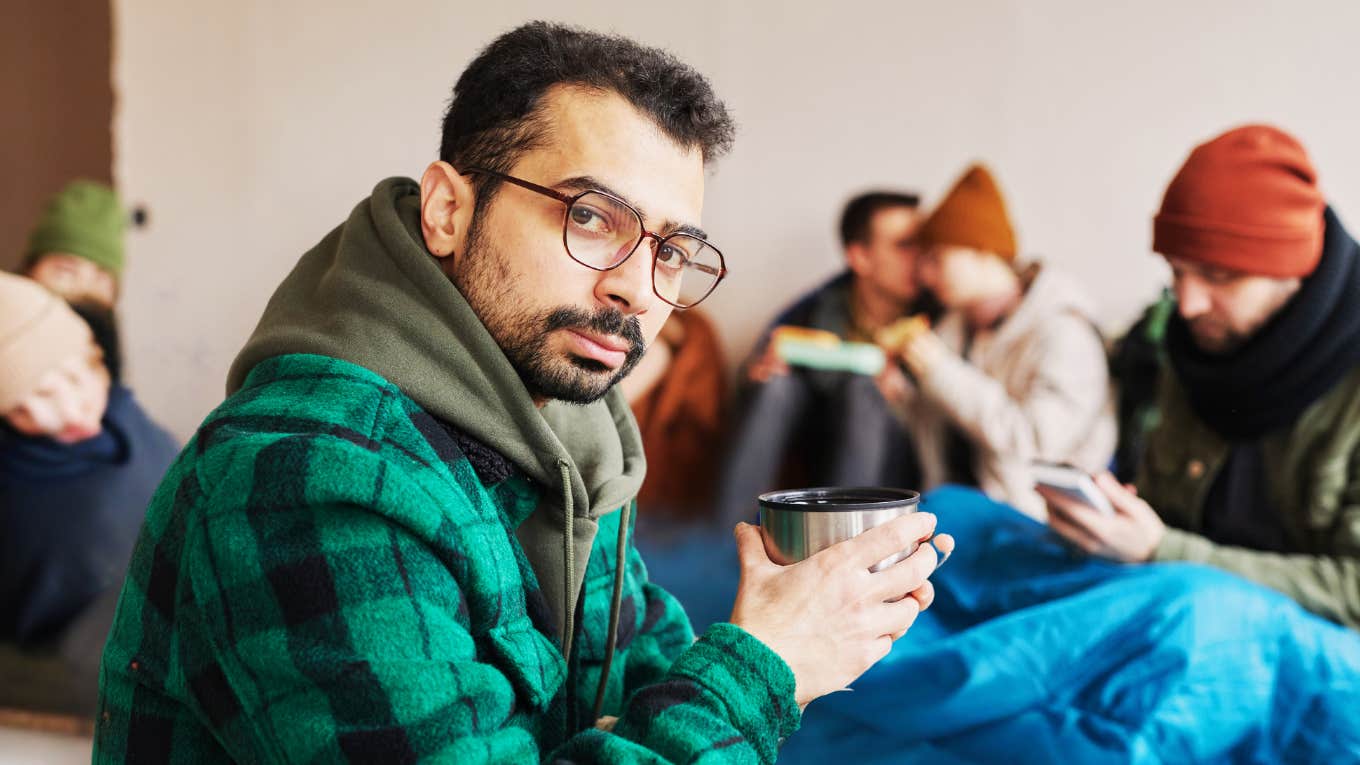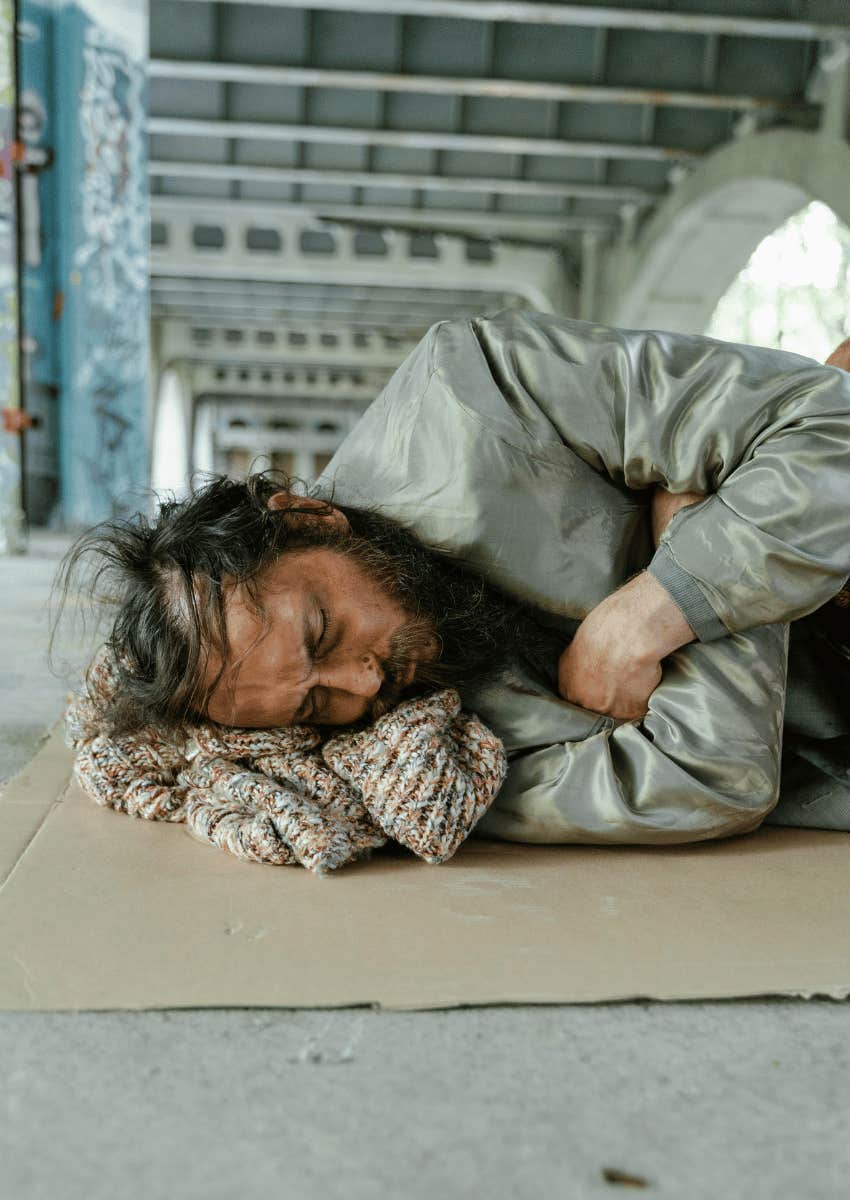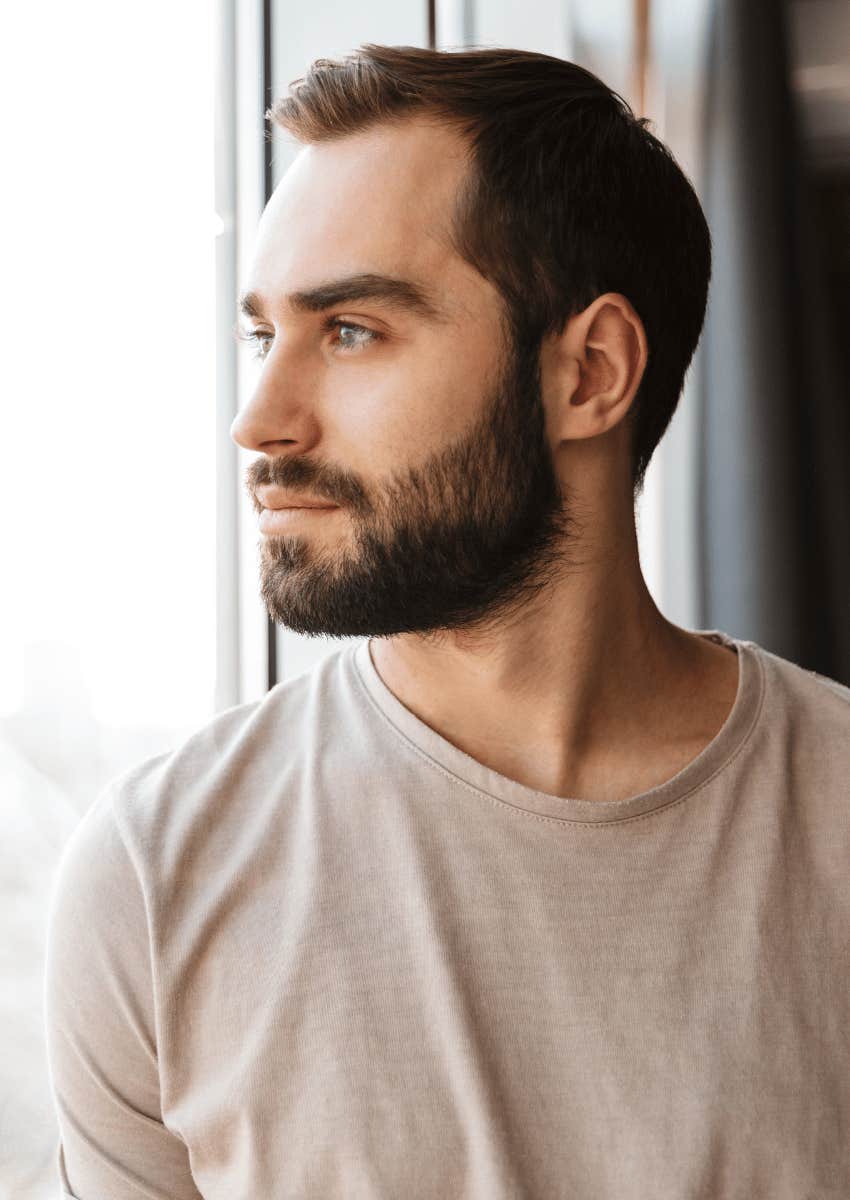Being A Good Person Made Me A Worse Human Being — 'I Wasn't Serving Soup To Help Anyone'
True connection doesn’t come from being good.
 SeventyFour | Canva
SeventyFour | Canva The night I realized I was a monster, I was wearing a volunteer badge and serving soup to the homeless.
“God bless you,” I said mechanically, ladling hot liquid into a disposable bowl. My sleeve rode up, revealing track marks I hadn’t quite managed to hide. The man across the counter — eyes sunken, hands trembling — stared at those marks for a long moment before meeting my gaze.
“You’re one of us,” he said softly. I yanked my sleeve down and forced a smile, that practiced expression of benevolent concern I’d perfected over years of performative kindness. “More soup?” I offered, desperately trying to maintain the facade.
He shook his head. “Stop pretending. It’s cruel.” That word — cruel — hit me like a physical blow. Because he was right. Here I was, barely two weeks clean, playing at being a savior while my needle marks were still fresh. I wasn’t serving soup to help anyone. I was doing it to convince myself I wasn’t like them. To build a wall between my darkness and their despair.
The costume of kindness
Just a few months ago, my life was a bustling parade of contributions and commitments. I volunteered wherever I could, lending a hand at charity drives and offering my time. Then it all crumbled — not from drugs, not initially — but from the sheer weight of trying to uphold this image of ceaseless altruism.
The descent was anything but dignified. My first week on the streets, I tried to maintain my good person persona. I’d pick up trash around my sleeping spot, thank people graciously for their spare change, and be the most polite junkie in the alleyway. It was exhausting. More than that — it was a form of violence against myself and others.
I remember watching a woman OD behind a dumpster. While others rushed to help, I stood frozen, worried about legal liability and maintaining my image. She could have died in the time it took me to stop calculating the moral implications of involvement. That’s what being good does — it paralyzes you with considerations of propriety while real human beings suffer and die.
The liberation of disgrace
 MART PRODUCTION | Pexels
MART PRODUCTION | Pexels
My moment of true freedom came in a Walmart parking lot at 3 a.m. I was digging through a trash can for food when a family walked by. The kind of family I used to be. The mother pulled her children closer. The father stepped between us. I saw myself reflected in their fear — not as the good person I’d pretended to be, but as a human being at their most desperate and real.
And for the first time, I didn’t try to prove I was better than what they saw. I didn’t attempt to explain that I used to be somebody, that I had once been good. I simply existed in that moment, in all my messy, broken humanity. It was the most honest interaction I’d had in months.
The unexpected teachers
My real education in humanity came from those society had labeled as irredeemable. There was Marcus, a schizophrenic who would give away his psych meds to other homeless people having breakdowns, even though it meant suffering through his episodes unmedicated. “Sometimes helping hurts,” he told me, during one of his lucid moments. “But that’s how you know it’s real.”
Sarah, a sex worker who kept a list of bad johns to protect other women, even though maintaining that list put her at risk. She didn’t do it to be good. She did it because, in her words, “Being human means being part of a web. Pull one thread, we all feel it.”
Even Neil, my old dealer, taught me something about humanity. The day I showed up in withdrawal, broke and desperate, he didn’t sell me drugs. Instead, he drove me to detox, waited six hours in the parking lot to make sure they took me, and then never sold to me again. When I asked him why, he shrugged. “Some kinds of kindness look like cruelty from the outside.”
Beyond good and evil
 Dean Drobot | Shutterstock
Dean Drobot | Shutterstock
These days, I live in a different world. I code for a living, have a roof over my head, and could probably pass for good again if I tried. But I won’t. Last week, I found myself in that same shelter where I’d once offered soup. Not as a client this time, but not as a savior either. I was there to fix their database system. As I worked, a new resident caught my eye — wearing an expensive watch, clearly still in shock at where he’d landed.
I recognized that look — the desperate need to prove he wasn’t like the others, that he was still good. I saw him straightening chairs, picking up trash, and performing his version of the dance I’d once known so well. After my work was done, I sat next to him. Didn’t offer advice or platitudes about hitting bottom or finding God. Just sat there, two human beings in the ruins of what we’d once thought defined us.
Finally, he spoke. “I used to be —”
“I know,” I interrupted. “Me too. But we’re something better now.”
“What’s that?”
“Real.”
Being human means embracing the darkness along with the light, the selfishness along with the generosity, the capacity for both cruelty and kindness that lives in each of us. It means understanding that true connection doesn’t come from being good — it comes from being genuine.
I’m not a good person anymore. I’m something far more valuable: a real one. And in that reality — messy, complicated, and true — I’ve found a kind of peace that goodness never gave me.
David Lee Condrey’s writing is a raw, unfiltered reflection of his experiences with homelessness, addiction, and identity, offering readers an unflinching look into the human condition. His work has been featured in publications such as The San Diego Union-Tribune and Medium. 

